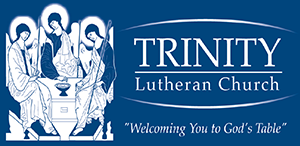After his baptism and temptation, Jesus began his ministry by declaring that the kingdom of God has come near. He then invited Andrew, Peter, James and John to follow him (Matthew 4:19-22; Mark
1:17-20). As we know, they respond “immediately,” leave their boats and follow Jesus. Jesus also called others (e.g., Philip [John 1:43] and Levi the tax collector [Luke 5:27]), and they follow him, too. Of course, not everyone responded positively to Jesus’ invitation to follow. The “rich young ruler” (Luke 18:18-23; Mark 10:17-22; Matthew 19:16-22) decided not to follow Jesus when Jesus invited him to give his many possessions to the poor and join Jesus’ company of disciples.
We also know that most of the religious leaders of the day declined to follow Jesus. The vast majority of the scribes, Pharisees and religious dignitaries preferred to see Jesus crucified rather than follow him. Ironically, that is precisely the destination to which Jesus invites his followers. “He called the crowd with his disciples, and said to them, ‘If any want to become my followers, let them deny themselves and take up their cross and follow me.” (Mark 8:34, NRSV). In contrast to our metaphorical reading of “take up your cross,” which we use to describe everything from having a tough time finding a parking space to fighting cancer, everyone who heard Jesus say this would have seen too many people hung on real wooden crosses to interpret it any way but literally. Rome was in the business of crucifying Jews who made trouble, and Jesus was looking more and more like a trouble-maker every day.
So why would anyone follow Jesus? Something must have compelled those men and women who followed Jesus around first century Galilee and Judea to risk everything just to be with him. I think
they saw that there was more life in following Jesus than in following – or even leading – anyone else.
After Jesus died and rose again and ascended into heaven, Peter, James and John and the others continued to follow Jesus. They did not become “leaders” once Jesus was gone. They remained followers and disciples (literally “learners”) throughout the rest of their lives. Christians often quote Jesus’ last words to Peter and the rest of the disciples in Matthew’s Gospel. We even have a name for them, “The Great Commission”: “And Jesus came and said to them, ‘All authority in heaven and on earth has been given to me. Go therefore, and make disciples of all nations, baptizing them in the name of the Father and of the Son and of the Holy Spirit, and teaching them to obey everything that I have commanded you. And remember, I am with you always, to the end of the age’” (Matthew 28:18-20, NRSV). We focus on the command to go and make disciples – which is vital and which, quite frankly, we don’t take seriously enough – and then think of ourselves as teachers and leaders.
But Christians don’t quote Jesus’ last words to Peter in John’s Gospel nearly as much as they quote the Great Commission: “Follow me!” (John 21:22). The primary task of Peter and all the others who followed Jesus before the crucifixion was to continue to follow Jesus after the resurrection, even as they made disciples and helped others follow Jesus. It’s our primary task, too.
This makes sense because Jesus is not dead and buried somewhere in a tomb outside Jerusalem. He is living in us. We can still follow him and join in the work that Jesus continues to do in the world. And that is precisely what we need to do in order to be faithful. Theologian Leonard Sweet puts it this way:
We don’t need more larger-than-life leaders who conscript others to follow their vision. We need more down-to-earth followers who invite others into a life that opens into one day becoming not leaders in their own right but unflappable, outflankable followers of Jesus. The best thing we can hear someday is not, “Well done, leader.” The best thing we can ever hear from our risen Lord is, “Well done, follower.” (I Am a Follower: The Way, Truth and Life of Following Jesus , p. 175)
In the Church, there is only one Leader, one Shepherd, one Lord – Jesus. The rest of us are followers. Some of us have been following for a longer period of time. Some know the Shepherd a little better. Some take more time to listen to the Shepherd’s voice. These “first followers” (as Sweet calls them) can help and encourage others to follow the one Leader we have, but we never become “leaders” in our own right.
Peter seemed to remember Jesus’ last words to him, even as he instructed the elders in churches to guide the people for whom they cared: “I exhort the elders among you to tend the flock of God that is
in your charge, exercising the oversight, not under compulsion but willingly, as God would have you do it—not for sordid gain but eagerly. Do not lord it over those in your charge, but be examples to the flock. And when the chief shepherd appears, you will win the crown of glory that never fades away” (1 Peter 5:1b-4). Peter seems to be saying, “Don’t try to be the Shepherd, just be a really good sheep [example].” There is much more that can be said about encouraging and guiding others in order to help them follow Jesus, and I’m very thankful that I can do this work. But first we need to remember that all of us are followers. Let’s stay focused on Jesus.
